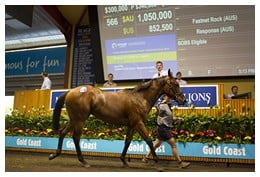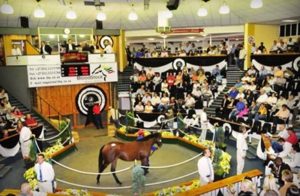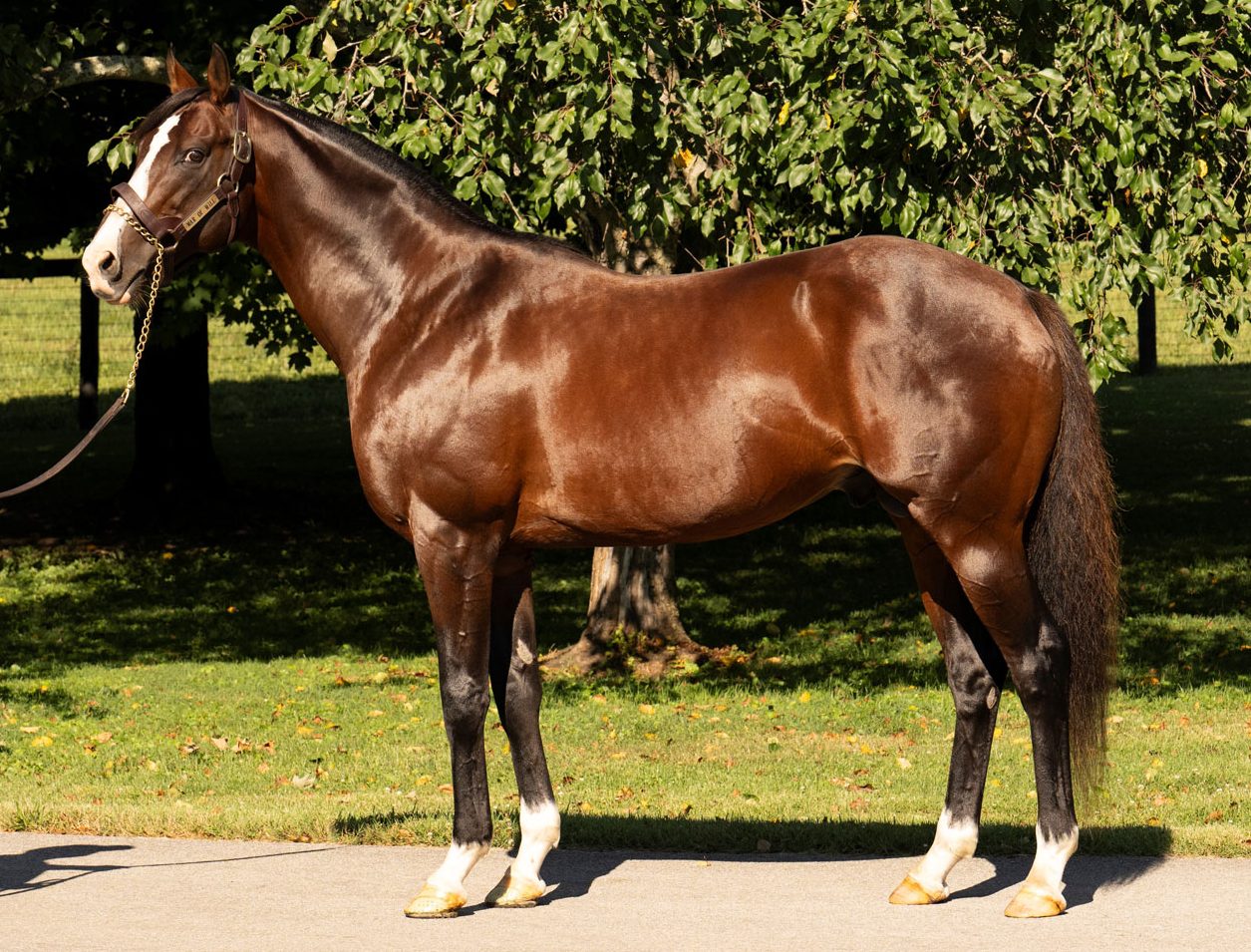 Brian Watson has clearly investigated – and thought about -‘Do auctions present a fair platform?’ in great detail, suggests Oscar Foulkes.
Brian Watson has clearly investigated – and thought about -‘Do auctions present a fair platform?’ in great detail, suggests Oscar Foulkes.
He is correct in observing that stakes earned do not cover the aggregate cost of purchasing yearlings, plus the monthly training fees.
This, of course, doesn’t mean that there are individual owners who don’t make money (although no-one should expect to own horses for a profit). It also excludes from the equation economists’ concept of ‘utility’. In other words, the excitement experienced by virtue of owning the winner of a maiden plate, let alone the Vodacom Durban July.
Professional breeders run businesses like any other. They are obviously free to dispose of their produce any way they want to, but auctions are the main marketplace. I can tell you from experience that auctions are a horrible experience. Yes, they’re exciting, and all that, but they’re a most stressful end to what amounts to a three-year process marked by risk every step of the way.
In most ‘proper’ businesses one has the opportunity of exercising quite a large degree of influence or control over marketing, advertising and distribution. So, selling prices and sales volumes are a direct consequence of actions taken by the management team. All this goes out of the window when you breed horses for sale at auction.

Your business plan may require you to occasionally sell a good-looking colt by a champion sire for R2 million. You have no idea what buyers are out there, but to protect your production cost – and your own view of its utility to you (you may decide that, below that price, you’re willing to take on the risk of racing it yourself), you set a reserve price of between R500 000 and R750 000. If there is just one interested party, you will get no more than your reserve price.
The spat between South African sales companies appears to have fractured the potential pool of buyers, with the result that the group of buyers at any sale may be smaller than it would have been in the past. The consequence is that could be harder to end up with two determined bidders, which are ultimately the lifeblood of any auction (from a vendor’s perspective).

You mooted the possibility of bidding starting at the reserve price.
I hope you don’t mind me sharing an observation about auction psychology. In the case of a horse that you’d hope to sell for R100 000 at a major sale – in other words, a horse with pedigree or conformation shortcomings – you’d be better off not setting a reserve price of R100 000. It’s when that horse could be had for a bargain R25 000 or R50 000 (i.e. there is no reserve) that bidders suddenly get interested. A person bids, followed soon after by someone else who thinks he may miss out on the bargain. One thing leads to another and the horse gets knocked down for more-or-less what you hoped to achieve. Those people would have been unlikely bidders while the auctioneer was padding around the reserve price.
The logic behind shopping for yearlings at select sales is simply one of probability.
The average for the breed is that 49% of foals born will win a race, and 3% will win a stakes race. The incidence of Grade One winners is just 0.5%, or one of every 500. Great stallions will achieve something close to 10% stakes-winners, so when you buy one of their progeny at a select sale (perhaps further streaming for conformation and female line) you have a three or four times greater probability of owning a decent horse. The principle is that good horses are cheap and bad horses are expensive, no matter what you pay for them.
 I should also mention that champion racehorses are rarely available for sale once they are exposed. Frankel isn’t the perfect example, because he’s a home-bred, but I can’t imagine that any sum of money would have persuaded Khaled Abdullah to sell Frankel on the eve of his 2000 Guineas rout. Your best chance (well, the only affordable one) is to buy them as yearlings.
I should also mention that champion racehorses are rarely available for sale once they are exposed. Frankel isn’t the perfect example, because he’s a home-bred, but I can’t imagine that any sum of money would have persuaded Khaled Abdullah to sell Frankel on the eve of his 2000 Guineas rout. Your best chance (well, the only affordable one) is to buy them as yearlings.
On to your final question: why are breeders selling?
There have been successful owner-breeders (Federico Tesio being a prime example, although the commercial side of his activities may have been less stellar), but any business has to decide which section of the value chain it wants to inhabit. If one traces the route followed by precious metals or stones from mine to market, they pass through many hands before reaching the consumer.
Breeding horses is a cash flow hungry business with long cycles. If the breeder foregoes the income from yearling auctions, an additional two to three years is added to a cycle that is already three years long.
Is there a better way?
 Perhaps there’s a case to be made for a breeder striking a deal with a syndicate or racing company to sell everything he/she produces. Perhaps this would be a 75% interest, with the purchase consideration covering production costs, plus a bit more. The breeder would then be exposed to the upside of any of the horses being good performers. The arrangement would have to include an agreement that the slow ones get off-loaded quickly and that big offers for good ones get accepted.
Perhaps there’s a case to be made for a breeder striking a deal with a syndicate or racing company to sell everything he/she produces. Perhaps this would be a 75% interest, with the purchase consideration covering production costs, plus a bit more. The breeder would then be exposed to the upside of any of the horses being good performers. The arrangement would have to include an agreement that the slow ones get off-loaded quickly and that big offers for good ones get accepted.
Regardless of how the horse was sold/bought, or the purchase price, there is no experience like winning big horse races. It’s a rush, literally







